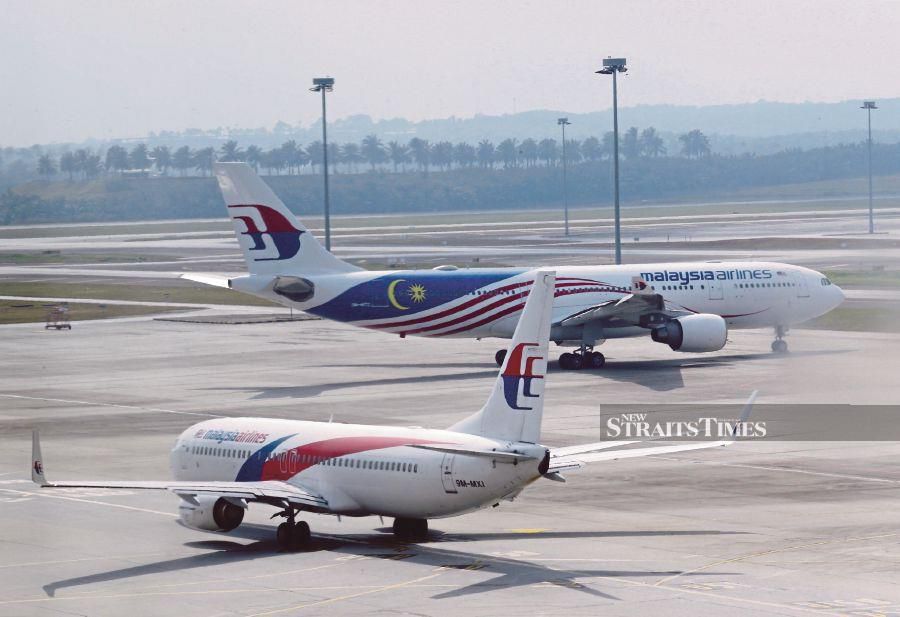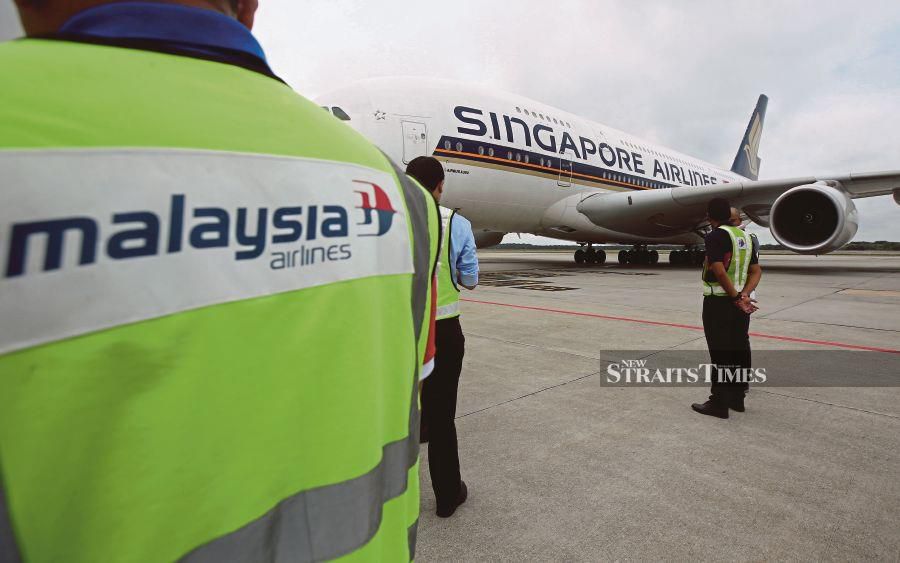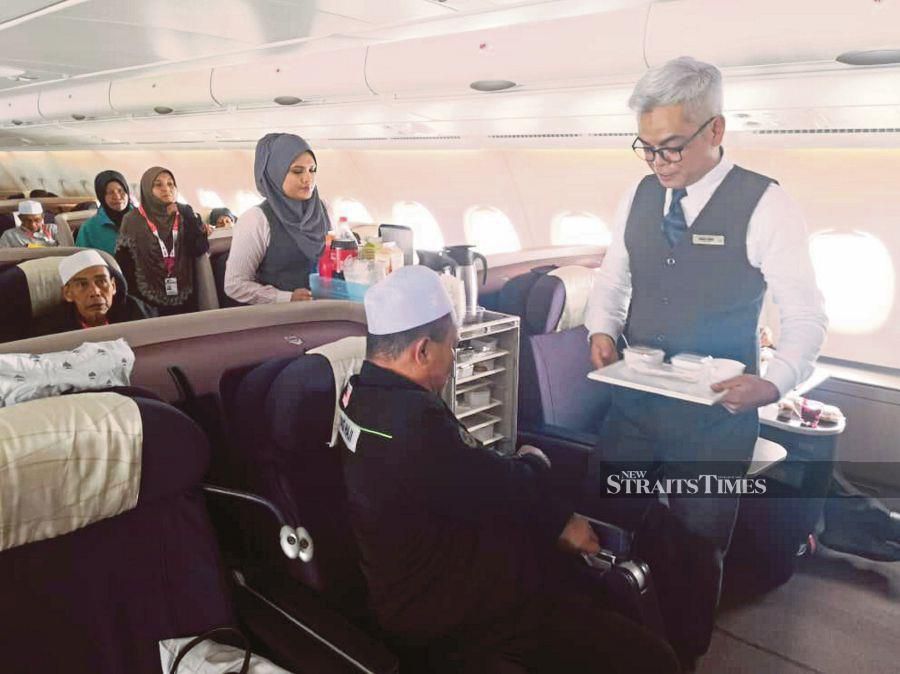8 January 2020
Volatility in fuel and foreign exchange rates (forex), overcapacity and stiff competition from regional peers and Gulf carriers have hit the local aviation sector with a severe turbulence last year.

Aviation analysts said the local aviation industry was at a critical juncture, given the United States Federal Aviation Administration’s (FAA) downgrade of the country’s air safety rating, the loss of profits among local airlines, the pending decision by Khazanah Nasional Bhd (Khazanah) to find a strategic partner for Malaysia Airlines Bhd (MAB) and the review of the country’s airport policy.
Malaysia’s reputation was badly tarnished by the unnerving audit that resulted in the downgrade of the Civil Aviation Authority of Malaysia’s (CAAM) International Aviation Safety Assessment (IASA) rating from Category 1 to Category 2 last November.
FAA determines whether the civil aviation authority of other countries’ oversight of their air carriers that operate, or seek to operate, in the US or codeshare with a US air carrier complies with safety standards established by the International Civil Aviation Organisation (ICAO).
The downgrade came after the FAA conducted an in-country reassessment of CAAM in April, followed by discussions with the authority in July.
Under Category 2, Malaysia joins the likes of Bangladesh, Ghana, Costa Rica, Thailand and Curacao, where their airlines are not allowed to expand or change their existing services in the US,
Aviation experts believe the local aviation sector requires a comprehensive overhaul, and the Transport Ministry should review CAAM and approve a new flight path for the troubled sector to support Malaysia Airports Holdings Bhd’s (MAHB) and domestic carriers’ future needs.
Khazanah managing director Datuk Shahril Ridza Ridzuan said the country’s aviation industry was experiencing overcapacity with local airlines (Malaysia Airlines (MAS), AirAsia and Malindo) creating a huge market supply, given the market size was about 30 million people, or about 1.7 seats per true passenger.
The profitability of local airlines continues to be of concern as carriers are flying in the red on account of volatilities in fuel prices and forex.

However, low-cost carrier (LCC) AirAsia Group Bhd’s unit AirAsia X Bhd signed a massive order from Airbus SE for an additional purchase of 12 A330neo and 30 A321XLR aircraft, for a combined value of more than US$5 billion.
Delivery of the A330neo is expected to start in the middle of this year, while the A321XLR is scheduled to arrive in 2023.
AirAsia Group chief executive officer Tan Sri Tony Fernandes said the airline’s latest firm order provided greater flexibility to better manage capacity on key routes, while exploring opportunities to operate non-stop flights between Southeast Asia and destinations like Australia, China and Japan.
AirAsia is also venturing into non-airline digital businesses with its subsidiary RedBeatVentures, with an understanding that it has the potential to outperform the airline business in the next two to three years.
While rapidly building its business foundation, RedBeatVentures group president Aireen Omar said the company’s revenue contribution was likely be substantial to AirAsia.
“There is a potential for digital businesses to overtake the airline business because RedBeatVentures is not only about flying from one point to another,” Aireen told the NST.
NO DECISION BY KHAZANAH
MAB subsidiary Firefly resumed flights to Singapore via Seletar Airport on April 21 after services were suspended on Dec 1, 2018.
Seletar operator Changi Airport Group (CAG) said the Malaysian airline operating turboprop planes would initially fly twice-daily between Subang and Seletar until April 28, before increasing to six a day the following day.
The year also ended with no decision on the strategic partner for MAS.
Economic Affairs Minister Datuk Seri Azmin Ali, who is Khazanah’s board member, said lead proposals received by the sovereign wealth fund were not “attractive” and the final decision would likely be made only this year.
“We had our board meeting on Dec 17 and the matter was discussed. However, the proposals presented during the meeting were not attractive enough for us (Khazanah) to decide,” he was reported as saying.

Azmin said Prime Minister Tun Dr Mahathir Mohamad, who was also Khazanah’s chairman, had agreed with the board that it should consider other options before making a decision.
“We need to hold more discussions as we have received proposals from other regional and international players (airlines and non-airlines),” he said.
Shahril Ridza said the sovereign wealth fund was unable to finalise the potential investors at this stage.
“Still a lot of work to be done,” he said.
Khazanah had, in late July, hired Morgan Stanley to reach out to potential investors as the fund preferred an independent adviser to run due diligence in evaluating the process.
Shahril Ridza also confirmed that Khazanah had shortlisted four companies, comprising global and regional airline operators and investors, to gain a stake in MAS.
However, later, it seemed that two out of three foreign airlines reportedly shortlisted by Khazanah had denied that they were eyeing a stake in the loss-making national carrier.
Qatar Airways and Japan Airlines dismissed reports linking them to a stake acquisition.
Qatar Airways chief executive officer Akbar Al Baker said the airline was willing to help turn around MAS, but ruled out acquiring it.
MAB group chief executive officer Captain Izham Ismail said the airline welcomed strategic investors to navigate its path through the current “irrational” market, hampered by overcapacity, oversupply and the US-China trade war.
He said fuel prices and forex continued to erode the airline’s yields over the years.
“However, it depends on MAB shareholders to decide on its strategic investors. In my personal opinion, I welcome strategic investors as they will help the airline navigate during this challenging market,” he said.
PROJECT AMAL TAKES OFF
MAB’s newly-formed entity Project Amal, a division for umrah and haj charter services, has reportedly secured about 50 per cent market share of the anticipated 290,000 Malaysian pilgrims for the umrah this year.
Under the entity, the national carrier will work directly with 12 reputable local travel agents to provide charter services for pilgrims.
Captain Izham said MAB had expected Project Amal to contribute positively to the group’s profit margin.
“Margin is definitely positive,” he said without disclosing any figures, but reckoned that MAB had begun seeing encouraging traction.
Project Amal began operations in the first-quarter of last year and is operating under a different division of the group after securing a provisional Air Service Licence (ASL). It is also in the midst of acquiring an Air Operator’s Certificate (AOC).

Izham said Project Amal was solely owned by MAB, and if feasible, it would seek potential investors to expand.
Meanwhile, airport operator MAHB, which runs most airports in the country, encountered major technical disruptions at both Kuala Lumpur International Airport (KLIA) terminals last August.
The technical glitch caused dozens of flight delays and affected the flight information display system, check-in-counters, baggage handling systems and WiFi coverage.
With a network of five international airports, 16 domestic airports and 18 single take-off landings (in Sabah and Sarawak), MAHB said the massive glitch that affected operations for almost four days was likely a cyberattack.
The government, via the Transport Ministry, also reviewed a new passenger service charge (PSC) effective Oct 1 last year.
It is applicable for international flights from all airports in Malaysia, including klia2, except Kuala Lumpur International Airport (KLIA).
The new rate is RM50 compared with RM73 previously. PSC rates for domestic and Asean flights at all airports remain at RM11 and RM35, respectively.
Transport Minister Anthony Loke reportedly said the government decided to review the PSC charges to reduce tax burden in light of the new levy under the Departure Levy Act 2019, which came into effect on Sept 2.
Loke said the PSC should not be confused with the new departure levy, as the former was charged by the government on all passengers leaving the country for use of airport facilities, and collected by airlines on behalf of the airport operator.
FOREIGN INVESTMENT, MAVCOM DISSOLUTION
Three new initiatives worth more than US$120 million by Airbus SE in the country is expected to further develop Malaysia’s aerospace and aviation sector.
Its chief executive officer, Gauillaume Faury, said the new initiatives would include the expansion of Sepang Aircraft Engineering, the company’s wholly-owned maintenance, repair and overhaul (MRO) facility, the establishment of the Airbus Malaysia Digital Initiative, and an increase in participation in the Aerospace Malaysia Innovation Centre (AMIC).
Airbus SE aims to contribute US$550 million annually to Malaysia’s economy within five years, in sourcing and services businesses, from the current US$400 million.
This will be driven by a vast talent pool, greater participation by higher learning institutions to support the local aerospace sector, as well as incentives detailed under the country’s roadmap for the sector.

Malaysia is currently the regional hub for Airbus Helicopters, offering customer support, MRO services as well as training at Subang Airport.
The facility has recently been expanded with the opening of a new state-of-the-art helicopter completion and delivery centre for the region.
The year ended with a shock to the local aviation sector when the Transport Ministry announced that the Malaysian Aviation Commission (Mavcom) would be dissolved and some of its functions transferred to CAAM.
The ministry said the decision was made to rationalise the aviation industry, in the hope of optimising “existing human and financial resources (and) enhance the efficiency of governance and the quality of service delivery”.
The news garnered mixed reaction from regional aviation experts, who said Mavcom had played an important role since its establishment in March 1, 2016, under the Malaysian Aviation Commission Act 2015 to regulate economic and commercial matters related to civil aviation in the country.
Similarly, Mavcom also expressed dissatisfaction with the proposal, which was approved by the cabinet.
It was reported that the commission could still operate independently for at least another six months before its consolidation with CAAM.
Loke said it would take at least six months or more to repeal or amend the relevant laws, including the Mavcom Act and the CAAM Act.
“Mavcom will operate as normal until the relevant Acts have been repealed or amended,” he said.
Source: nst.com.my
Site Search
Did you find what you are looking for? Try out the enhanced Google Search: